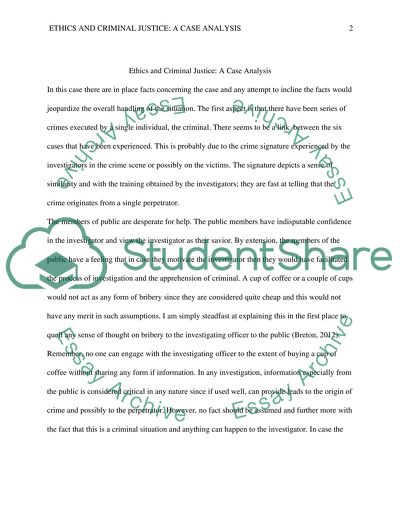Cite this document
(“Ethics and Criminal Justice: A Case Analysis Essay”, n.d.)
Retrieved from https://studentshare.org/sociology/1496706-ethics-and-criminal-justice-a-case-analysis
Retrieved from https://studentshare.org/sociology/1496706-ethics-and-criminal-justice-a-case-analysis
(Ethics and Criminal Justice: A Case Analysis Essay)
https://studentshare.org/sociology/1496706-ethics-and-criminal-justice-a-case-analysis.
https://studentshare.org/sociology/1496706-ethics-and-criminal-justice-a-case-analysis.
“Ethics and Criminal Justice: A Case Analysis Essay”, n.d. https://studentshare.org/sociology/1496706-ethics-and-criminal-justice-a-case-analysis.


